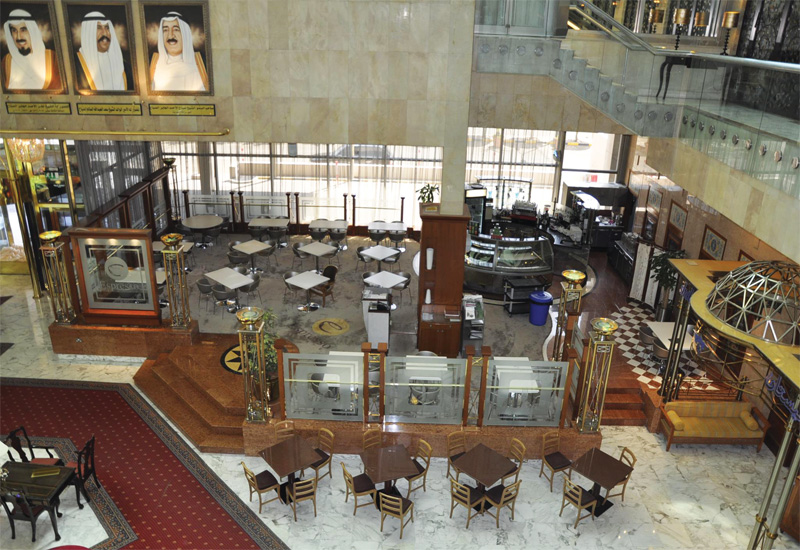Saudi Market
Kuwait has never been a hotspot in terms of inbound tourism, but the domestic market continues to support the hotels which are operational in the country. “The main focus of any new [hotel] arrival will be on the local market,” says Hotel Missoni Kuwait general manager Alfio Bernardini.
Aboobacker agrees, but says that still more can be done to capitalise on this domestic sector. “Kuwait has a young population, wealthy population and mobile population – they spend a lot on travelling.
Capturing at least a part of that market for the hotels in Kuwait is important, but people need something to attract them. Some changes are happening – [malls such as] The Avenues are doing well, attracting a lot of people and people are talking about new destinations coming up in the city, which is a good thing, because these are the kinds of things they need to pull people into Kuwait and let them spend.”

| Advertisement |
The Avenues is currently expanding further due to this increase in interest – its phase three is to open at the end of October, housing 545 retail units, including 52 food and beverage outlets.
It is this large-scale shopping experience that draws tourists from Saudi Arabia’s Eastern Province, with Kuwait being seen as a comparatively liberal destination, explains Hewett.
“The location has very limited leisure facilities in that area of Saudi, so a lot of people tend to travel across the border into Kuwait and use those facilities. So the more they develop this kind of base tourism infrastructure, you’ll probably see more people come in from Saudi.”
Of course, leisure is still a relatively small piece of the pie, with the bulk of tourism – domestic or otherwise – being business.
“The largest degree of stimulus is government and non-government organisations – there is an enormous amount of business that is training and educating the Kuwaiti population in sectors where they are employing – finance, health, administrative – and that does bring a lot of consultants and coaches into the country,” explains Koth.
“Probably 20% [of business] will be from the KSA – trading is strong between the common border, and it is just so convenient to drive into Kuwait.”
Where to enter
While Sita’s IFA hasn’t yet entered its base-country of Kuwait, he says that this is because it “simply hasn’t come across the right opportunity yet”. He adds, however, that if it were to be entering the market, it would be in the resort segment.
Jumeirah’s Griffiths adds: “Very little change is expected over the coming years in terms of inbound business. The supply, however is growing and we need to ensure that we remain competitive and offer a value for money proposition to our guests together with unparalleled levels of service to maintain our goal of being market leaders.”
Bernardini agrees that it’s doubtful that the country will see much change in terms of inbound tourism, and, in the face of this, Hotel Missoni Kuwait has “implemented a new strategy” to focus more on attracting the domestic market, who see it “as a resort type property”.
Identity
Until there is a major shift within the country’s tourism market, everyone agrees that there is unlikely to be a pickup in numbers filling the extra hotels. “The pie will remain the same, and what will happen is people will get different variations of the pie – some will get higher, some will get smaller,” Aboobacker says. “But I don’t see the demand increasing substantially.”
Both Hewett and Aboobacker at TRI offer up an idea which has worked well for Dubai, Abu Dhabi and Doha – forge an identity which hasn’t already been taken in the region and fill the void.
“Dubai has always set a benchmark, Abu Dhabi is more cultural with the museums on Saadiyat and with Yas Island. Doha is setting itself as a regional and international convention area, with big MICE demand,” Hewett says. “So what is Kuwait? It needs to define itself for the future.” They suggest the most appropriate route to go down would be cultural tourism, although that could be fairly niche.
So, should any brands be entering the country before any signals of growth start to appear? “Having the opportunity to enter the market is a positive regardless,” says Bernardini. “The occupancy levels are lower than other Gulf countries but the average rate is one of the highest and that’s what attracts companies to operate in Kuwait.”
Koth agrees that it is good to have a presence: “It is good to be there and ready for when the business does start to come, but everyone is well advised to not expect skyrocketing performances – there will be a plateauing for a while before acceleration can take place.”
Article continues on next page ...









 Search our database of more than 2,700 industry companies
Search our database of more than 2,700 industry companies









